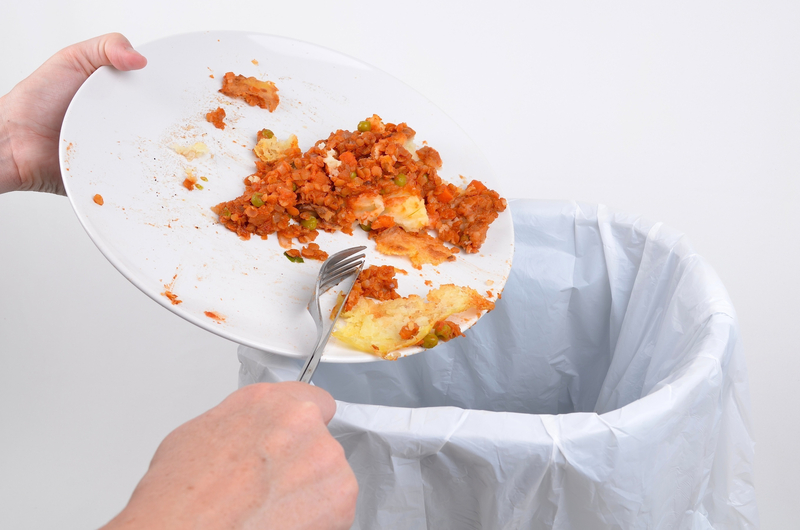Bulky Waste Items and Budgeting: Your Guide to Saving Each Time
If you've ever undertaken a home renovation, moved to a new house, or simply performed a major spring-cleaning session, you know how tricky and potentially costly it can be to dispose of bulky waste items. Things like old sofas, mattresses, broken appliances, or outdated wardrobes can quickly pile up and cause headaches when it comes to responsible disposal. Fortunately, with the right strategies, you can manage these large items and save money in the process. In this guide, we'll show you the most effective ways to streamline your bulky rubbish removal while sticking to your budget.

What Are Bulky Waste Items?
Before diving into cost-saving techniques, let's clarify what constitutes a bulky waste item. These are typically household items that are too large or too heavy for standard rubbish collection bins. They may include:
- Old furniture (couches, wardrobes, chairs, tables)
- White goods (fridges, washing machines, ovens)
- Electronic equipment (televisions, computers)
- Mattresses and bed frames
- Garden waste (large tree branches, fencing, sheds)
- Carpets and rugs
- Building rubble (if generated from small home DIY)
These items are a headache because most municipal waste collection services have strict guidelines, or even extra charges, for the collection of such bulky rubbish. This often leaves homeowners searching for budget-friendly disposal solutions.
Understanding the Costs of Bulky Waste Removal
The costs associated with disposing of bulky waste items can be significant, and they often catch people off guard. Here's why:
- Council fees: Many local councils offer special collection services for bulky items, but generally impose a fee per item or per collection.
- Private services: Waste collection companies charge varying fees based on the item size and weight.
- Skip bins: Hiring a skip for rubbish removal can cost hundreds of dollars, particularly for large projects.
- Transport costs: If you choose to haul waste to the landfill yourself, consider fuel costs and any landfill fees.
It's important to plan for these costs in advance, especially if you are budgeting for a renovation, spring cleaning, or a big move.
How to Budget for Bulky Waste Collection
Setting an effective budget for disposing of bulky waste will ensure you don't face surprise expenses. Here are some steps to help you save each time:
1. Inventory Your Bulky Waste
- List all the items you want to remove.
- Estimate their size and weight (many collectors price by volume or mass).
- Check for hazardous components (like fridges with refrigerant gas).
2. Check Local Council Services
Most councils offer an annual bulky item collection--often free for a limited number of items. Visit your council's website or call them to check:
- How many collections are permitted yearly?
- Which items are accepted and which are not?
- Are there restrictions on quantities or sizes?
- What are the charges for additional collections?
3. Shop Around for Quotes
If you require more frequent or larger-scale removal, it pays to get at least three quotes from local bulky waste removal companies. Be sure to:
- Ask about weighting, volume measurement and minimum charges.
- Inquire about discounts for multiple items or combined pickups.
- Clarify whether labour (carrying out of the home) is included.
4. Consider DIY Options
Sometimes, if you have access to a vehicle and volunteers to help, hiring or borrowing a van/trailer and hauling the items to your local tip can be cheaper than a professional service. Make sure to factor in:
- Landfill or recycling centre charges (check local rates).
- Time and effort needed for loading/unloading.
- Fuel costs and vehicle wear.
5. Sell or Donate Usable Items
- Many charities and not-for-profits collect large household items for free.
- Sites like Gumtree, Facebook Marketplace, and FreeCycle are excellent for giving away items to people who will collect them themselves.
Remember: The less you have to throw out, the more you save--both financially and environmentally.
Smart Strategies for Handling Bulky Waste Sustainably
Budgeting isn't just about spending less; it's about making smarter choices overall. Here are some sustainable approaches that can make your next bulky waste clear-out easier and more affordable:
1. Reduce Before You Remove
Bulky waste budgeting starts with conscious consumption. Before buying new furniture, think carefully about whether you need it or if you can repair or refurbish existing items.
2. Upcycle Where You Can
Some of your old sofas, tables, or shelves could be given a new lease on life with a little creativity. Search Pinterest or YouTube for upcycling ideas; often, a coat of paint, new handles, or some simple carpentry can turn bulky waste into treasure!
3. Take Advantage of Community Clean-Up Days
Many councils host regular community clean-up days for large collections of bulky items, sometimes for free or at a reduced fee. Mark your local schedule and plan your cleanouts accordingly.
4. Pool Resources with Neighbours
- Consider joining forces with neighbours for a group waste collection or skip hire, dividing the cost between households.
- Organise 'street swap' days where you trade, sell, or gift unwanted bulky items.
5. Separate Waste for Cheaper Recycling
- Disassemble furniture into smaller, manageable pieces for easier transport and potentially lower fees.
- Remove recyclable materials (such as metal frames or wooden slats) to be disposed of at lower-cost recycling centres.
The Cost Breakdown: Real-World Estimates for Budgeting
It helps to have a ballpark figure when planning your bulky rubbish removal:
- Couch or sofa: ?20-?50 per item via council collection; local waste company charges vary.
- Mattress: ?15-?40 per unit. Some councils charge less if combined with other items.
- Large fridge/freezer: ?20-?50. Additional charges may apply for hazardous components.
- DIY at the tip: Council recycling centres may allow residents to drop off limited bulky waste loads for free or for a nominal fee (typically ?10-?30 per load).
- Skip hire: ?120-?250 per skip (dependent on size and location).
Note that prices can fluctuate based on your region, the volume of waste, and whether you want items collected from inside your home or kerbside.
Top Tips for Saving on Bulky Waste Removal
- Book well in advance to secure free or cheaper council slots.
- Consolidate items into a single collection whenever possible.
- Disassemble furniture for easier stacking and reduced volume charges.
- Give away usable items through online classifieds and community groups.
- Avoid hazardous waste in your load--these often incur higher fees.
- Research private collectors with transparent, up-front pricing.
- Plan your removal during off-peak times to avoid seasonal fee hikes.
- Pool waste with neighbours to split collection or skip hire costs.
- Check eligibility for discounts (e.g., pensioners, low-income households may qualify for reduced rates with some councils).
Common Mistakes to Avoid with Bulky Waste Budgeting
- Waiting until the last minute: This can cause you to miss free council slots and opt for expensive, urgent collection services.
- Not checking item eligibility: Some councils have strict rules--e.g., excluding construction debris or certain white goods.
- Ignoring illegal dumping: Fly-tipping is illegal and subject to heavy fines. Always use approved waste transfer stations or licensed collectors.
- Underestimating volume: Overfilled skips or loads cost more and can be rejected on collection day.
- Overlooking give-away options: Don't forget the power of community--charities or neighbours may gladly take unwanted items, saving you disposal fees.
Recycling Bulky Waste: Environmental and Cost Benefits
Responsible and strategic bulky waste budgeting isn't just good for your wallet--it's also great for the planet. Recycling large household waste items helps reduce landfill use and conserves valuable resources. Here's how you can enhance your environmental impact:
1. Identify What Can Be Recycled
- Metal bed frames, washing machines, and bikes often have a high recycling value.
- Wooden furniture may be accepted by recycling centres if it doesn't have chemical finishes.
- Electronics must be taken to e-waste or WEEE compliant facilities.
2. Use Specialist Services
Some companies specialise in the sustainable disposal of items like electronics, mattresses, or fridges. They may charge a small fee, but divert valuable materials from landfill.
3. Get Creative
Many upcycling groups welcome old chairs, shelves, or doors. Offer these items for free in your community to keep them out of landfill--and lower your bulky waste collection costs at the same time.

Frequently Asked Questions
How often can I book council bulky item removals?
This varies; most councils allow 1-3 free or subsidised collections per year per household, but always check your local authority's policies.
Can all bulky waste be recycled?
Not all, but many items such as metal, clean wood, and white goods are widely recyclable. Mixed-material items may need to be dismantled for optimal recycling.
Is it cheaper to hire a skip or use private collectors?
This depends on your total waste volume and whether you can share a skip or collection with others. Compare all options side by side for your waste load.
Will removal companies take items from inside my home?
Many do for a small extra charge. Council collections are usually kerbside only.
Conclusion: Making Bulky Waste Removal Affordable and Stress-Free
Bulky waste removal doesn't have to break the bank or the planet. By planning ahead, seeking out free or discounted services, and exploring sustainable alternatives like donation and recycling, you can keep your home clutter-free without sacrificing your budget. Remember to always document your disposal, use licenced collectors, and make informed choices for the best results every time.
With these tips and strategies, your bulky waste budgeting will pay off--helping you save money, space, and the environment in one go. Happy clearing!
